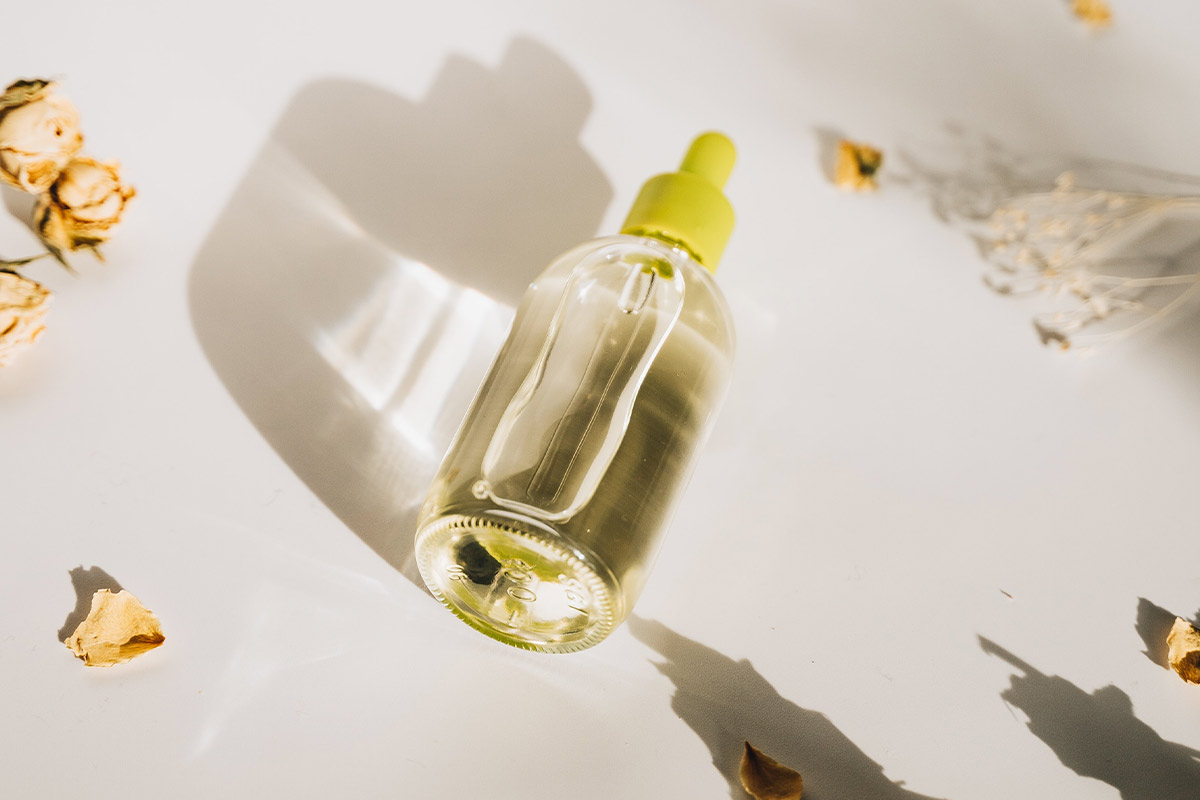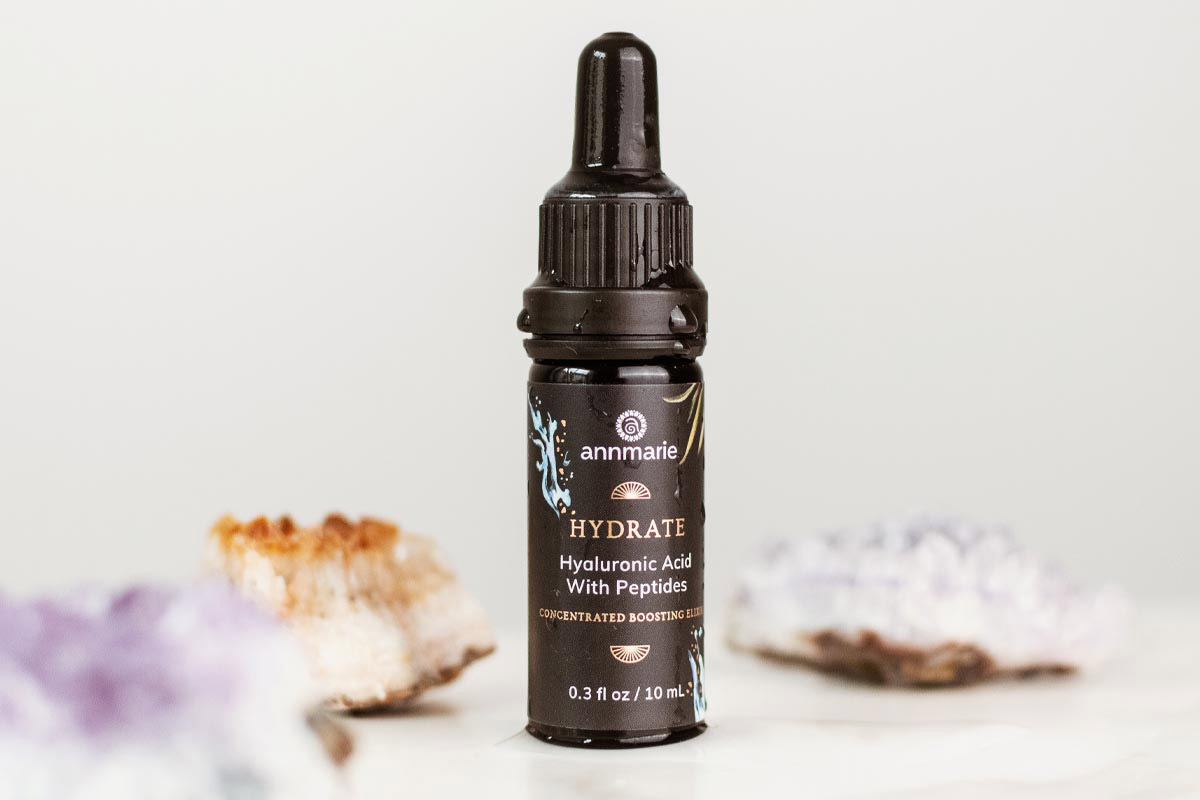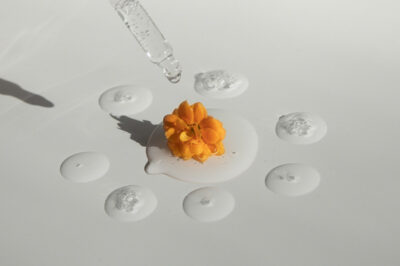Table of Contents[Hide][Show]
Are you looking to restore your skin’s natural health and radiance? Then there’s one ingredient you need to know—hyaluronic acid. This powerful molecule has been trending as a skin care superstar thanks to its incredible hydrating, plumping and rejuvenating properties for your skin. In this article, learn all you need to know about hyaluronic acid, its benefits and how to incorporate this wonderful ingredient into your daily skin care routine.
What Is Hyaluronic Acid?

Hyaluronic acid is a naturally occurring molecule that’s found in your body and part of the non-cellular part of connective tissue that provides structural support to your cells. It’s found in high concentrations in our skin, the synovial fluid of joints and eyes and helps keep them hydrated, lubricated and elastic. Also called “hyaluronan,” “hyaluronate” or “HA,” it’s also known as the “goo” molecule.
Attracting and holding up to 1,000 times its weight in moisture, hyaluronic acid is a powerful humectant and is often used in skin care for its incredible plumping and hydrating effects on your skin. It also helps reduce the appearance of fine lines and wrinkles. For cosmetic purposes, hyaluronic acid is often extracted from Japanese sweet potato and other gelatinous root vegetables. Since it’s biodegradable and biocompatible, it’s generally safe and well tolerated by your skin and isn’t typically known for causing adverse reactions.
Why Is Hyaluronic Acid Used for Skin Care?
Hyaluronic acid helps your skin retain moisture for a youthful, dewy look. Our body naturally produces hyaluronic acid, which is crucial in maintaining our skin’s hydration and promoting a healthy, plump appearance. However, as we age, our body’s natural production of hyaluronic acid goes down, leading to a loss of hydration, tightness and firmness in our skin. This can result in the appearance of fine lines, wrinkles and dull, tired skin.
Incorporating hyaluronic acid in your skin care routine can help support the body’s natural levels of hyaluronic acid, as some of it can be lost due to aging, as well as combat any loss of moisture. It also helps improve the overall texture and tone of your skin leaving smoother and more radiant. Because hyaluronic acid is a natural component of your skin, it’s readily absorbed and works well with your body.
Where Does Hyaluronic Acid Come From?
Hyaluronic acid can come from a variety of sources. In skin care, this can include plant sources like tubers, citrus fruits and green leafy vegetables, where hyaluronic acid is created and extracted by a microbial fermentation process. A popular animal source is using hyaluronic acid from a rooster’s comb.
As a cruelty-free company that values clean, organic and wildcrafted ingredients, we ethically and sustainably source our hyaluronic acid from non-GMO vegetables. If you are vegan and concerned about where your hyaluronic acid comes from, reach out to your skin care company to check where your ingredients are sourced.
Hyaluronic Acid Skin Care Benefits
Hyaluronic acid is gentle, effective and usually well tolerated by all skin types, including sensitive skin. Here are some of its benefits for your skin.
Hydrates
As a humectant, it pulls moisture into your skin. It can hold up to 1,000 times its weight in water, making it highly effective for hydrating your skin.
Plumps
With well-hydrated skin, your skin appears plumper and more youthful. With a boost to your skin’s moisture levels, you’ll enjoy an elevated look to the overall texture, flexibility, tone and appearance of your complexion.
Reduces fine lines and wrinkles
As our skin matures, its natural levels of hyaluronic acid decrease, leading to aging signs like the appearance of fine lines and wrinkles. Hyaluronic acid helps keep your skin looking smoother and more youthful.
Soothes
Hyaluronic helps calm the appearance of occasional redness and replenishes moisture to help combat temporary discomfort on your skin.
Side Effects of Using Hyaluronic Acid on Skin
The potential side effects of hyaluronic acid are generally mild and rare. It’s considered safe and well-tolerated by most skin types, with very few side effects reported.
However, like any skin care ingredient, there’s a small chance that some people may experience a negative reaction. The most common side effect of using hyaluronic acid may be skin irritation like redness, itching or a rash. In rare cases, hyaluronic acid (or other ingredients in your hyaluronic skin care product) can also cause an allergic reaction. This is extremely uncommon, but if you experience any of these symptoms, stop using the product immediately and seek medical attention.
As with any new skin care product, it’s a good idea to patch test first to ensure you don’t have an adverse reaction. Consult your dermatologist or health care professional if you have further questions or concerns.
How To Use Hyaluronic Acid in Skin Care Routine?
As a versatile skin care ingredient, hyaluronic acid can be incorporated into your skin care routine in various ways. One of the best ways to use hyaluronic acid is as a booster in your serum or facial oil. This helps enhance the hydrating properties of your product and boost your skin’s overall health and radiance.
Here are some simple steps to use hyaluronic acid in your skin care:
- Cleanse your face with a gentle, non-stripping pH-balanced cleanser
- Apply a small amount of hyaluronic acid serum to your skin (or add hyaluronic acid to your serum with Concentrated Boosting Elixirs)
- Gently massage it in, and pay particular attention to dry areas
- Apply your moisturizers or facial oils to seal in the hydrating benefits of your hyaluronic acid serum
Hyaluronic acid can also be found in other skin care products, including toners, masks and moisturizers. This is one ingredient that the skin just loves to drink up, because adequate hydration truly does wonders for the skin. Unlike other activated ingredients that can be a bit intense for more sensitive skin types, hyaluronic acid (in most instances) is very well tolerated by all skin types. With consistent use, your skin will look and feel more hydrated, plump and radiant.
Hyaluronic Acid in Skin Care Products

We use hyaluronic acid as a key ingredient in many Annmarie Skin Care products to deliver exceptional hydration and anti-aging benefits to your skin. Our bestselling Anti-Aging Serum features hyaluronic acid and organic, wildcrafted botanicals to help smooth fine lines and wrinkles while boosting hydration for a youthful glow.
In addition, our Citrus Stem Cell Serum provides wonderful hydrating and brightening benefits that brighten and renew the look and feel of your skin with citrus-derived stem cells and hyaluronic acid. Replenish your eyes with our Fruit Ceramide Eye Serum which includes lingonberry plant stem cells with hyaluronic acid to protect and instantly calm your skin.
To supercharge your skin’s hydration, use our Hydrate Concentrated Boosting Elixir, formulated with an activated concentration of hyaluronic acid and vegan collagen prepeptides. Simply add 1-3 drops to any of your serums or facial oils for a powerful boost that will plump and hydrate your skin for a gorgeous, dewy look.
Our Resurfacing Facial Exfoliant also contains this superstar ingredient. This hydrating and non-irritating alpha hydroxy acid product with honey-derived lactic acid smoothes, clarifies and brightens your skin.
These potent formulations with high-quality wildcrafted ingredients are ideal if you want to incorporate hyaluronic acid’s hydrating benefits into your skin care routine.
Conclusion
Overall, hyaluronic acid is a valuable and effective ingredient for maintaining healthy, hydrated skin, offering a wide range of skin benefits. From boosting hydration and smoothing fine lines and wrinkles to improving skin texture and overall radiance, hyaluronic acid is a must-have for anyone looking to achieve a healthy, youthful radiance.
Frequently Ask Questions
Is hyaluronic acid good for clogged pores?
Yes, hyaluronic acid is good for clogged pores. It helps hydrate your skin without clogging pores while calming occasional redness on your skin. Hyaluronic acid is a lightweight, non-comedogenic ingredient that helps to hydrate your skin for a more plumped effect. By incorporating hyaluronic acid into your skin care routine, you can help maintain healthy, clear skin.
Is hyaluronic acid safe to use while pregnant?
Hyaluronic acid is generally considered safe to use while you’re pregnant, as your body naturally produces it. However, as with any skin care ingredient, it’s best to consult your healthcare provider before using hyaluronic acid or any other new product during pregnancy.
Does hyaluronic acid brighten skin?
Hyaluronic acid’s main role is typically associated with hydration and plumping, rather than brightening the skin. However, when your skin is properly hydrated, it can appear plumper and more luminous, making it look brighter or more youthful in appearance. If you are looking for a brightening product, you can look for hyaluronic acid formulations that include brightening agents like vitamin C or niacinamide as hyaluronic acid alone may not be enough to address all causes of dullness or the appearance of darkened areas.







Leave a Reply